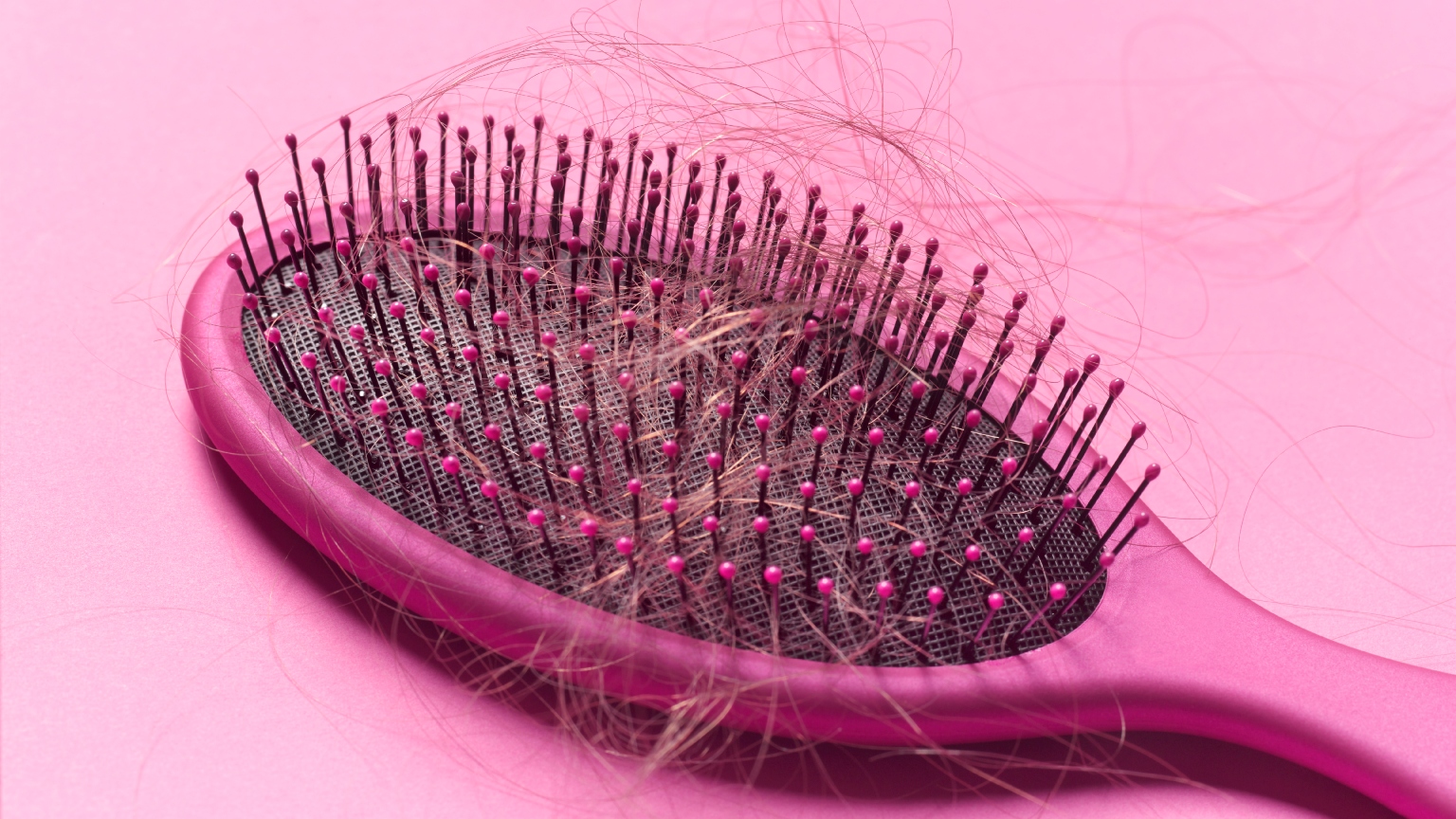
Hair loss is one of the most frustrating beauty concerns across the gender spectrum, and up until now, there have only been a handful of tried-and-tested medications on the market to address it. In 1997, the FDA approved oral finasteride (aka Propecia) for hair loss treatment in men, and since the 2010s, many doctors have prescribed oral minoxidil and spironolactone for off-label use (both are approved for hypertension treatment). Other than a few non-FDA-approved supplements (although hair care brands are launching new formulas at an increasingly rapid rate, despite somewhat lackluster clinical testing) that's pretty much the extent of the current hair loss medicine options. But that's all about to change.
Veradermics, a biopharmaceutical company based in Connecticut, announced last week that it would begin phase three trials to obtain FDA approval for a new hair loss drug, currently named VDPHL01. It would be the first extended-release oral minoxidil treatment (topical minoxidil is the active ingredient in the popular Rogaine product line) as opposed to oral minoxidil's current off-label use, and the first FDA-approved oral treatment designed to regrow hair in both men and women. In other words, this is a big freaking deal, especially considering up to 50% of men and women will experience progressive hair loss and thinning (known as androgenetic alopecia) in their lifetime.
"Despite a variety of prescription medications, over-the-counter supplements and treatments, and in-office procedures, we are still lacking effective treatments for hair thinning," says board-certified dermatologist Joshua Zeichner, MD, adding that the current form of minoxidil is not an ideal formulation. "After you take it, your blood levels of the medication rise quickly, but then drop quickly as it is cleared from your system within hours. In order to achieve the optimal effect [to treat hair loss], you want to ensure a sustained high level around the hair follicle."
He notes that the current oral minoxidil formulation only gives the hair follicles a small window of time to experience the benefit of the drug, and while raising the dose may give a larger window of benefit for the hair, usage is limited by the potential side effects, like heart palpitations and lightheadedness. This new form, however, is a sustained, extended release oral minoxidil specifically designed to treat hair thinning by maintaining a steady dose of the drug at therapeutic levels. As Dr. Zeichner explains, "This keeps levels of the drug even in the blood steam, without the initial peaks followed by [drops] seen with the versions currently available. Ultimately, this means better effects for the hair with fewer potential side effects." After all, the majority of the population would likely avoid sacrificing their health and general well-being for the sake of hair regrowth. More options means safer, and hopefully even more effective, treatments for anyone struggling to minimize hair loss and regrow their hair.

Understandably, the medical community is excited about the prospect of a new drug to enter the hair loss market after nearly 30 years without any significant innovation. As board-certified dermatologist Marisa Garshick, MD FAAD, explains, "While it is not yet FDA approved and studies are still ongoing, it would be the first oral medication to potentially receive FDA approval for androgenetic alopecia in both men and women." As with many medications cleared by the FDA—not just in the hair loss category—testing has historically excluded women before being cleared for use. (Cue the world's biggest eye roll). Alas, Dr. Garshick notes that "phase two studies seem to be showing exciting results with visibly noticeable hair regrowth even after two months of use."
Still, there's a long way to go before the drug will hit the market. As Ava Shamban, MD, a board-certified dermatologist who has extensive experience in FDA pre-approval clinical trials, told Allure recently, "[There will be] double-blind tests at hundreds of approved clinical testing centers to prove that this product meets all the criteria to treat the condition it is indicated for with benefits across a specific population." That means thousands of testers will experience the drug to ensure its safety and efficacy before it is ever presented to the FDA. Dr. Shamban tells me that doctors and patients can reasonably expect Veradermics to submit VDPHL01 for a New Drug Application in 2027, and approval to come through roughly a year after that—maybe a touch sooner if we're lucky.
So while it might take a bit more time for your doctor to expand your treatment options—I know that I, for one, am incredibly anxious for a safer and more effective product to hit the market, especially if it's being tested on women for once—it's encouraging to think that irreversible hair loss could potentially become a relic of the past. In other words, the future is (almost) here, and it looks like it's going to be filled with good hair days.







